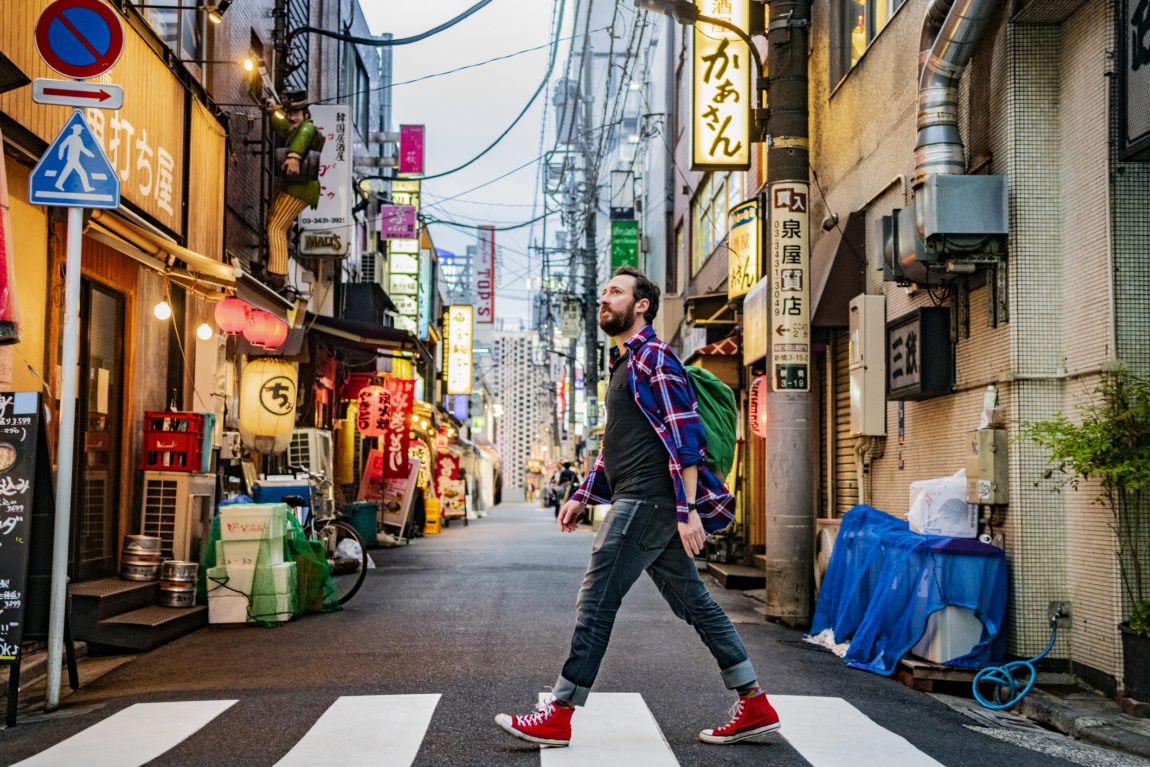Reading time: 5 minutes

Japan's drug policy is a little different than other countries, so it's important for Australians to review before visiting. Here's what you need to know.
‘Zero tolerance’ drug policy
The 'zero tolerance' drug policy in Japan means that you could get in trouble for bringing in cough and cold medications!
That's because this country has a different definition of an illegal substance – so what might be medicine to help you get over a sniffle is considered illegal to the Japanese authorities.
Our common cold medications often contain pseudoephedrine or codeine, both of which are controlled substances in Japan. Having these on your person as you enter the country gives authorities the jurisdiction to detain you and treat you as a drug dealer.
Of course, you aren't a drug dealer, so it's important to learn what medications you should leave back in Australia as well as learn what you should do if you absolutely need to bring prescription medications with you.
Rules for bringing prescription medicine into Japan
Japan has four categories of medication: Stimulants, Narcotics / Stimulants’ Raw Materials, Psychotropics, and General medicines. Depending on the name, classification, and quantity you may need to apply for an import certificate (called a Yunyu Kakunin-sho) to bring it into the country. Be sure to apply least 14 days in advance of your trip.
On top of this certificate, you’ll need a note from your doctor. This note needs to be detailed and explain both your condition and what medicine you've been prescribed. Make sure you have this when you are going through immigration.
If your medication is not a prohibited or controlled drug, you can bring it in without any special procedures. (You should keep any medications in their prescription bottle or container, and it's a good idea to have a copy of your doctor's prescription with you.) However, you are only allowed to bring in a 30-day supply of your prescription medications. So, if you are staying longer than those 30 days, you will need to apply for a Yunyu Kakunin-sho or find a doctor in Japan to prescribe you a replacement medication.
Use this guide to find a clinic near you.
 Photo credit Getty/JonnyGreig
Photo credit Getty/JonnyGreig
List of banned or controlled medications in Japan
Begin by looking for those main ingredients (pseudoephedrine or codeine) in the medications you're thinking about packing – if your meds contain these, leave them at home (if you can). In Australia, these ingredients are typically only in meds that are prescribed by a doctor or would need a special identity check with a pharmacist.
According to the Narcotics Control Department of Japan, if you bring any of the following prohibited medicines into Japan you risk being arrested, even if they are prescribed medicines at home:
- Amphetamine, Methamphetamine, Dexamphetamine (including ADDERALL): Classified as Stimulants.
- Methaqualone
- Codeine: Controlled as a Narcotic. You will need to apply for a Yunyu Kakunin-sho.
- Pseudoephedrine (cold and flu medicine, often sold under the name Sudafed): Controlled as Stimulants’ Raw Material. You will need to apply for a Yunyu Kakunin-sho.
- Methylphenidate (the active ingredient in Ritalin and Concerta): Classified as a Psychotropic medicine. According to the Narcotics Control Department, you don’t need a doctor’s certificate or permission unless you bring in more than 2.16g.
- Vyvanse is controlled as Stimulants’ Raw Material. You will need to apply for a Yunyu Kakunin-sho.
The Narcotics Control Department website has a more complete list of other substances and their categorizations.
Please note, there are no medication experts at the Embassy of Japan in Australia – they suggest referring to this page of advice from the Ministry of health, Labor, and Welfare of Japan.
We also recommend consulting with your doctor if you aren’t sure whether your medication contains a controlled substance.
Travel insurance
We all know that the good times can take a slight detour when travelling. When the going gets tough, Travel Insurance Direct policies may assist with travel insurance cover to help keep your trip moving in the right direction, so you can refocus on the fun.